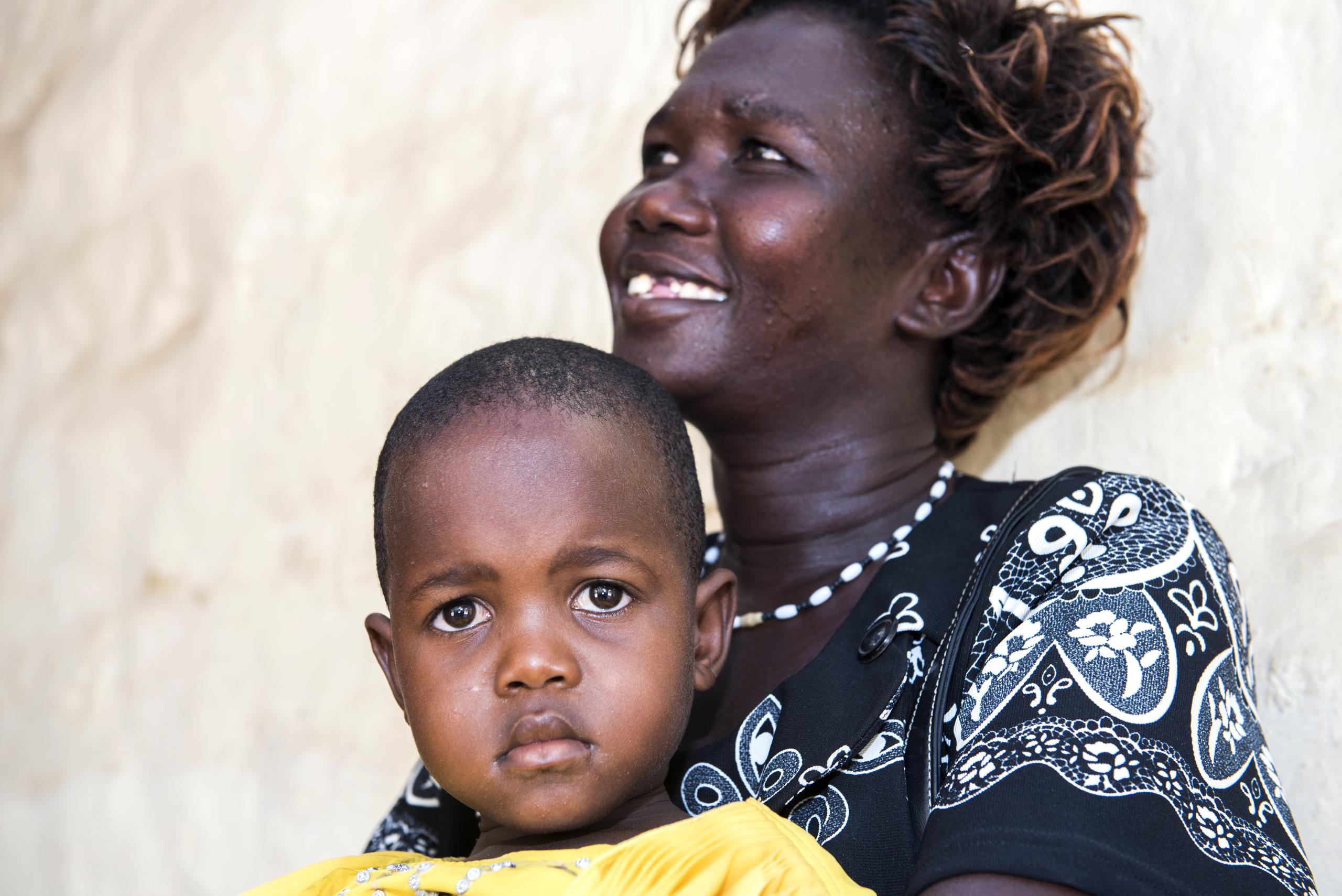Beads of perspiration form on the forehead of 3-year-old Veronica Ebenyo as she dozes in her mother’s lap at the maternal and child health unit of Lodwar County Referral Hospital in Turkana County, Kenya. Elizabeth Ebenyo has brought young Veronica for a check-up and is happy to report that her daughter is up to date on vaccinations and has a healthy weight. The Elizabeth Glaser Pediatric AIDS Foundation (EGPAF) supports this health unit, as well as the HIV clinic at the hospital.
This is Elizabeth’s fifth child, and is all the more precious because Elizabeth once believed that she would never bear another child. A decade ago, her husband passed away from an undiagnosed illness, which Elizabeth now believes was HIV related. After a period of grieving, Elizabeth considered her future.
“Maybe I can find another man and have another child,” she thought. “After all, I am still young.”
Elizabeth decided to begin her investigation with a trip to the hospital’s family planning clinic to see if she was healthy to bear another child. Clinicians invited Elizabeth to be tested for HIV, and she learned that she is positive for the virus.
“I was shocked,” says Elizabeth. “But in counseling I received a lot of information about HIV, and I generally accepted my status. I was introduced to antiretroviral therapy.
“Then I shared the information with my sister and she told me about other people in the community who are HIV-positive and are healthy. She encouraged me to join the peer support group at the hospital. They shared their knowledge and experience and strength. Some of them are neighbors in the village. They are still my friends.”
Two years later, Elizabeth fell in love with the man whom she would soon marry and with whom she would conceive another child—Veronica. When Elizabeth went to the hospital for her first antenatal care visit, she was counseled again about prevention of mother-to-child transmission of HIV. She was told to stay on her medication, to make all of her antenatal care visits, and to plan to deliver her child at the hospital. Elizabeth agreed.
In December 2012, Veronica was born without incident. Elizabeth continued to take her medication as prescribed throughout breastfeeding and to bring Veronica to the hospital for check-ups and PCR HIV tests. Finally, after 18 months, health workers administered an antibody test and Veronica was declared HIV-free.
“I was very happy,” says Elizabeth, smiling. “I had been worried that my daughter would have the virus. When I received the results, I finally believed what they had told me during [antenatal care].”
To celebrate the happy occasion, Elizabeth joined 35 other mothers with the same outcome for a “graduation” for HIV-exposed infants [HEIs].
“This was the first [HEI] graduation [at this hospital]” says Elizabeth. “I joined the other mothers in singing and dancing. I was relaxed and genuinely happy. I could hardly believe that the HIV virus was not there.” The children were dressed in tiny graduation gowns for the ceremony and were presented with toys. Elizabeth and the other mothers were given large plastic pails filled with baby supplies, a mosquito net, and a leso (body wrap).
Five pregnant mother were also invited to attend. “[The health workers] told them that if they take their medication their babies, too, can be negative.”
Elizabeth looks down at her sleeping daughter and describes the joy of watching a child grow: “She’s in nursery school and loves to play. She’s an intelligent child. She likes to count and to practice writing and to teach the rest of us what we may have forgotten. My other children enjoy having a baby sister.”
Elizabeth says that she talks to the pregnant women in her village about HIV. She even shows them the drugs that she takes. “Other people are afraid to talk about HIV, but I talk to them. I tell other mothers that if you follow the guidance, children can be HIV-negative.”




